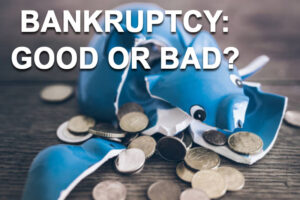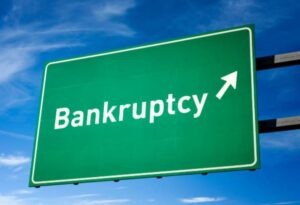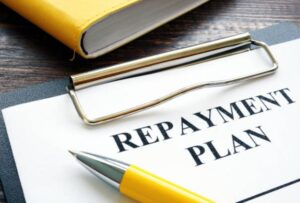Fixing your credit score can feel like trying to solve a puzzle with missing pieces. Many believe that once their credit takes a hit, it’s all downhill from there. But here’s the deal: repairing your credit might not be as impossible as it seems.
In fact, understanding how credit works and taking the right steps can gradually turn things around for you. This article is packed with insights and strategies that have worked for countless others in similar situations, offering you a genuine shot at financial redemption.
I’ve seen firsthand how small changes can lead to big improvements in one’s credit report. Follow this guide and you’ll get your credit back on track in no time.
Key Takeaways
- Check your credit report every year for free to spot and fix any errors. This helps improve your score.
- Paying off debts, especially those with high interest, is key to boosting your credit quickly. Use less than 30% of your credit card limit.
- Avoid new debts and keep old credit accounts open to make your credit history look good.
- With clear actions and a bit of patience, you’re turning the lights back on for your financial future.
Understanding Your Credit Score
Ever wonder why banks give you the side-eye when you ask for a loan? It’s all about that magic number: your credit score.
What Makes Your Credit Good Or Bad?
So, what flips the switch from good to bad credit? Think of your credit history as a story where every loan or credit card payment adds a new chapter. Paying bills on time and not maxing out your cards writes a pretty good tale.
This paints you as trustworthy in the eyes of potential lenders, which can lead to better interest rates for you. Now, if payments start missing their due dates or your cards are always maxed out, that’s when things go south.
Your FICO score takes these hits seriously since payment history and how much debt you’re carrying (aka credit utilization) weigh heavily in its calculations. In essence, staying consistent with payments and managing debts wisely keeps your story—and score—looking sharp.
Your credit score is like a financial report card, and you definitely want to be on the honor roll.
Your credit score is like a financial report card, and you definitely want to be on the honor roll.
Negative Information In Your Report
Bad marks on your credit report can stick around for a long time—think seven to 10 years. Missed payments, defaulted accounts, and collection issues are the usual suspects. These things can really drag down your score.
But here’s a bit of good news: the older these negative marks get, the less they hurt you. So that missed payment from years ago? It’s not doing as much damage now.
One in five people find mistakes on their credit reports.
Errors happen more than you’d think. One in five people find mistakes on their credit reports. Spotting and fixing these errors can help improve your score. You just need to tell the credit bureau what’s wrong and provide any proof you have.
They’re supposed to check it out within a month or so. This could be your chance to clear up misunderstandings and give your credit score a boost it needs.
The Possibility Of Removing Accurate Negative Information
So, trying to get rid of accurate negative info from your credit report is like wishing for a pizza to become a salad – it’s not happening. The law says this stuff has to stay put until its time is up.
You might hear whispers about shortcuts or secret tricks, but really, if the negative items are true, they’re sticking around.
Now, don’t throw in the towel just yet. While those blemishes can’t be magically erased before their time, keeping everything else spotless and working on good financial habits will start improving your score bit by bit.
It’s like cleaning your room. Focus on what you can fix and soon enough, it’ll look a lot better.
Obtaining Your Free Credit Report
You have a right to get one free copy of your credit report every year from each of the three big consumer reporting companies. To grab yours, head over to the official site for free annual credit reports.
It’s vital to go through this report with a keen eye. Why? Because understanding what’s in there is step one towards fixing any issues you might find.
Knowing what’s in your credit report is like having a map before you start a journey.
Knowing what’s in your credit report is like having a map before you start a journey.
After peeking at your credit history, it’s time to move on and see if anything looks wrong or out-of-place.
Negative Actions Taken Against You Because Of Your Credit
Bad credit isn’t just a number that makes you frown. It can actually cause real problems. Think higher interest rates on loans, which means you end up paying more over time. Ouch, right? And let’s not forget, some jobs check your credit score.
Imagine missing out on a dream job because of past money mistakes.
Landlords often peek at your credit too. A low score might mean no keys to that cool apartment. Credit card companies? They might say “no thanks” or give you a card with a high rate and low limit.
It feels like everything costs more or becomes harder to get when your credit takes a hit.
Now, onto checking your credit report for any errors…
Key Steps To Improve Your Credit
Want to give your credit score a little boost? Well, read up because we’re about to hit the road on an epic journey of tuning up that credit report of yours—think of it as a spa day for your financial history.
8. Checking Your Credit Report
Getting your hands on your credit report is like opening a map to find treasure. It shows you where you are and helps point out any mistakes dragging your score down. Think of it as detective work – reviewing your credit report reveals clues about improving your credit standing.
And guess what? You can get this info for free every year. So, snagging a peek at your report isn’t just smart. It’s crucial for patching up that credit score.
Spot something off? It’s time to dispute these errors with the credit bureau.
As you sift through the pages, keep an eagle eye out for anything odd – incorrect info could mean someone else’s mistake is messing with your score! Spot something off? It’s time to dispute these errors with the credit bureau.
This step isn’t just necessary. It’s empowering—improving your score means fixing those inaccuracies pronto! Better yet, watching those numbers climb after you’ve cleaned house feels pretty darn good.
7. Disputing Errors
Fixing mistakes on your credit report can give your score a big boost. Here’s the deal: You grab a free copy of your credit report and scan it for any wrong info. Spot something off, like a weird address or an account that’s not yours? Time to get in touch with the credit bureau and the company that reported it.
Send them a letter explaining what’s wrong. It might sound like homework, but hey, one in five people find errors on their reports – you’re not alone!
After sending your dispute, sit tight while they check things out. This part could take up to 30 days.
Make sure you’ve got all your facts straight when you reach out – because fixing these oopsies can mean a healthier credit score faster than you’d think!
And remember, keep copies of everything you send over just in case things need to get double-checked later down the line.
6. Bringing Past-Due Accounts Current
Paying off overdue bills is a big deal for fixing your credit. It’s like telling the world, “Hey, I’m getting back on track!” You see, clearing those outstanding debts isn’t just good for your peace of mind – it’s crucial.
Since bringing past-due accounts current is top on the list for improving your credit score, you’re making strides in rebuilding trust with lenders. Think about it – each settled account shines a light on your commitment to rectify late payments and resolve unpaid bills.
After tackling those lingering balances, setting up autopay should be next on your agenda. This step will ensure you keep all this hard work from unraveling by avoiding new late payments down the road.
5. Setting Up Autopay
Setting up autopay on your bills is like having a personal assistant who never forgets to pay the bills. It’s all about making those payments on time, every time, without you having to mark your calendar or set reminders.
By linking your bank account or credit card to your billing accounts, money gets deducted automatically when it’s due. This means no more late fees and definitely a happier credit score.
Since making timely payments is crucial for keeping that score in good shape, autopay can be a game-changer.
Since making timely payments is crucial for keeping that score in good shape, autopay can be a game-changer.
It’s super convenient too. Think of it as setting and forgetting – once you’ve set up automatic bill payments, you’re free from the worry of missing a payment date. Plus, this smooth move keeps those pesky late fees at bay and helps protect your credit history from negative hits.
So really, why not give your financial management an upgrade? Moving on, maintaining a low credit utilization rate also plays its part in fixing that credit score puzzle.
4. Maintaining A Low Credit Utilization Rate
After sorting out autopay to keep those payments on time, let’s talk about keeping your credit card balances in check. Keeping your credit card utilization low is like telling the world, “Hey, I’m good at managing my money.” Experts say you should aim to use less than 30% of your credit limit.
Imagine you have a $1,000 limit. Then, try not to carry more than $300 as a balance. But hey, if you can go for that gold star and keep it under 10%, even better! Lower debt-to-credit ratio shows you’re not just splurging all the time.
A low utilization rate whispers responsibility.
It’s all about showing lenders that you know how to handle borrowing responsibly. Think of your credit as a trusty bicycle – using too much of its capacity might wear it down quickly or show you’re struggling uphill. A low utilization rate whispers responsibility.
By maintaining responsible revolving credit usage and managing credit with care, lenders see you as less risky—which means better interest rates for future loans or cards. Plus, who doesn’t love seeing their credit score climb?
3. Paying Off Debt
Paying off debt feels great but can be a bit tricky. Sometimes, you might see your credit score go down after reducing debt, which is pretty confusing. The deal is, slashing your debt lowers your credit utilization rate—a key factor in improving your credit rating.
This should be good news because a lower rate usually means a better score. Yet, it’s not instant magic. Boosting your credit score takes some time.
Avoiding new debts while working on paying off the old ones shows you’re managing debt wisely.
Avoiding new debts while working on paying off the old ones shows you’re managing debt wisely. Reducing what you owe and keeping track of all payments helps build better credit over time.
Remember that patience is part of the process—it won’t happen overnight but steadily moves you towards healthier financial standing.
Now, let’s talk about why dodging new credit lines could also help keep that scoreboard ticking up.
2. Avoiding New Credit
So, you’ve tackled paying off debt. Nice! Next up is staying away from new credit. It’s a biggie for keeping your score healthy. Think hard before you say “yes” to more loans or cards.
This move keeps your debts in check and stops your credit score from dropping. It’s all about being smart and not piling on more than you can handle.
Each time you’re tempted by a shiny new card offer, remember it could mean trouble for your credit health. Staying clear of new borrowing shows you’re serious about managing money well.
Plus, it helps maintain the good work you’ve done improving that score of yours. Trust me, resisting the urge now pays off later in a big way for your financial peace of mind.
1. Keeping Unused Credit Accounts Open
Keeping your unused credit accounts open is like a secret weapon for your credit score. It helps by making your credit history look long and strong. Plus, it gives you more available credit.
Think of it as leaving a good book on the shelf – you might not read it every day, but it’s there when you need it, and just its presence makes the whole library look better.
Closing a card? Think twice.
This can make your spending seem bigger by comparison, which is not what lenders love to see.
That’s because saying goodbye to an old friend (your credit card) could hurt your score. Each time you close an account, your available credit shrinks. This can make your spending seem bigger by comparison, which is not what lenders love to see.
Also, remember that card issuers can close cards for inactivity. To avoid this little drama, use each card every now and then – even if just to buy coffee.
The Best Ways To Fix Your Credit Quickly
Want to give your credit score a quick boost? I’ve got some tricks up my sleeve that’ll help make that happen, without making you wait forever and a day.
5. Using A Reputable Credit Repair Service
Hiring a reputable credit repair service can make fixing your credit fast and easy. Good companies start by getting your credit report from the three big credit bureaus. This is important because you want to work with someone who knows what they’re doing.
Be smart and do your homework before picking a company. Look for rapid credit recovery or efficient credit improvement services that are trustworthy. You want quick results, but also need a team that’s reliable and professional in helping you get better credit.
4. Prioritizing And Paying Off Debt
Fixing your credit quickly involves getting smart about how you handle debt. It’s like juggling—know which balls are made of glass and which are rubber. High-interest debts, such as credit card balances, are the glass ones.
You don’t want them to hit the ground because they’ll cost you more in the long run. Start by throwing extra cash at these debts to get rid of them faster. This step is crucial for improving your credit score and managing your financial health.
Keep those up to avoid penalties but put any extra funds toward reducing high-interest debt.
Now, if you’ve got a mix of debts—say, a car loan (rubber) and that pesky credit card debt (glass)—focus on paying off the one with high interest first. That doesn’t mean ignoring your other payments. Keep those up to avoid penalties but put any extra funds toward reducing high-interest debt.
This strategy knocks down what costs you most, freeing up money sooner than later for other uses or savings. Plus, seeing those numbers go down can be a huge motivational boost!
3. Exploring Secured Credit Cards
Secured credit cards are like a training bike for your credit score. You give the bank some cash as collateral, and they give you a card with a limit often equal to that deposit. It’s a neat way because it’s backed by your own money, making banks more willing to work with you.
Plus, if things go sideways, they’ve already got your deposit.
Using this kind of card right means paying on time every single month and not maxing it out. Think of it as a credit score gym membership – use it responsibly, and over time, you’ll build up those credit muscles.
So basically, secured credit cards? Pretty cool tool in getting back on track or starting from scratch!
It’s all about showing lenders that hey, you can handle this! And when they see you’re good for it, your credit starts looking up. So basically, secured credit cards? Pretty cool tool in getting back on track or starting from scratch!
2. Becoming An Authorized User
Becoming an authorized user on someone else’s credit card is like getting a quick boost for your credit score. Imagine you’re climbing up with someone who’s already at the top. They give you a hand, and suddenly, you’re closer to where you want to be.
This trick works because the good history of that credit card starts showing up on your report too. But here’s the catch – it only helps if the primary account holder uses their card wisely.
If they mess up, it could drag you down as well.
Nearly half of folks who get added as authorized users see their scores jump to 680 or higher!
Now, think about this: nearly half of folks who get added as authorized users see their scores jump to 680 or higher! That’s entering into “good credit” territory without breaking a sweat.
So, by leveraging another person’s solid credit habits, you’re on your way to building stronger credit yourself. Just make sure both you and the primary account holder understand what responsible management looks like – or it might end up being more of a bumpy ride than expected.
1. Creating And Sticking To A Budget
Keeping track of your money is like having a map for your financial journey. You see where your cash comes from and where it goes every month. With a budget, you’re in charge. You make sure enough money covers bills and debt payments.
This way, no surprises come up. Everything gets paid on time.
Sticking to a budget also means you stop spending too much on stuff you don’t need. It’s about making smart choices with your money. When you save more, you have extra cash to pay off debts faster.
This helps improve your credit score big time! Now, let’s talk about avoiding those sneaky traps that can hurt your credit even more.
It’s Never Too Late To Get Started
So, we talked a bunch about fixing that credit, right? You’ve got the scoop on checking your report and squashing those errors. And hey, setting up autopay is like promising yourself you won’t forget your friend’s birthday—easy peasy!
Now, think about it: could these steps make your wallet happier? Definitely.
With clear actions and a bit of patience, you’re basically turning the lights back on for your financial future. So what’s stopping us from getting started today? Let this be the nudge you need—you’ve got this!
Disclaimer: The information provided in this article is for educational and informational purposes only and should not be construed as financial, legal, or professional advice. While efforts are made to ensure accuracy, the content may not reflect the most current legal or financial developments. No representations or warranties are made about the completeness, reliability, or accuracy of this information. Results may vary. Using any information provided is solely at your own risk. Consult with a financial advisor or attorney for specific advice tailored to your situation.














